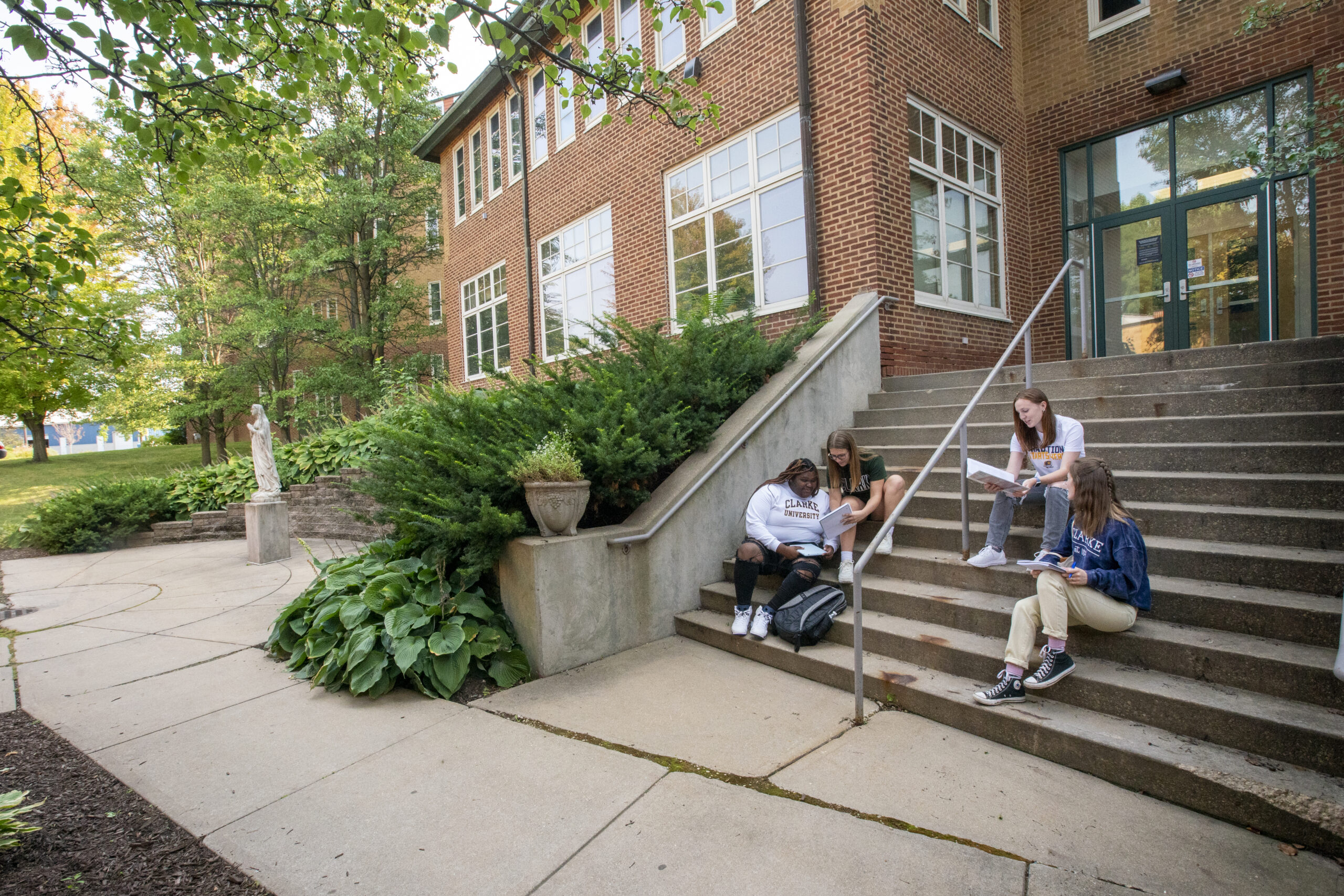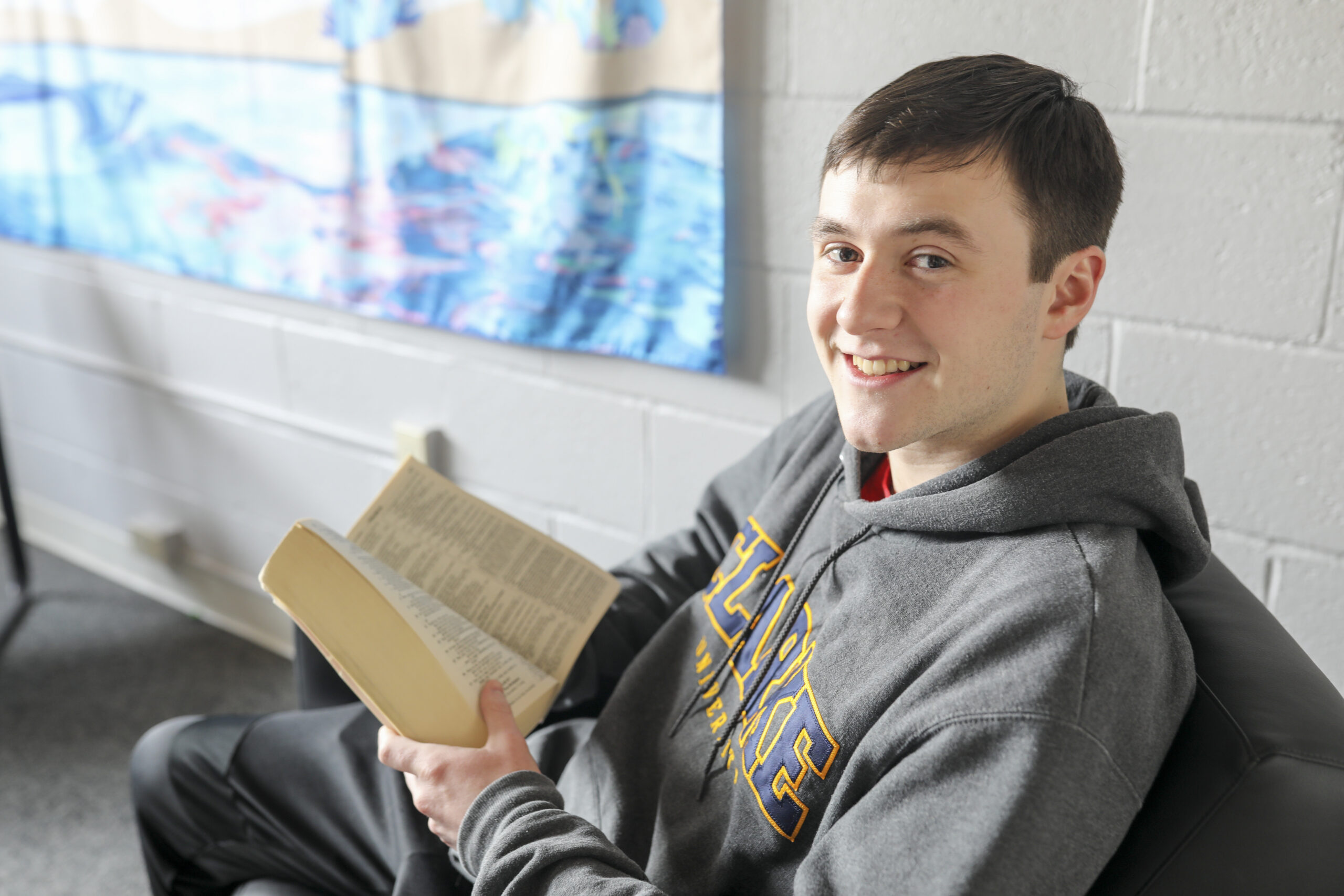William Gregory, Ph.D.
Knowledge has a power of its own to transform lives and open up the world anew. I simply aspire to be a messenger.
In alignment with our Catholic heritage, Clarke is committed to preparing you for a life of civic and social engagement through its Justice & Activism minor. A key component of the Justice & Activism program is focused on addressing diverse and far-reaching social justice issues, including the areas of poverty, racism, social conflict, and environmental destruction.
The program draws upon the strengths of various disciplines and emphasizes an understanding of recent history, contemporary social/political problems, and ethical values. Through your studies, you’ll explore the causes and nature of conflict and war; the connections between violence, terrorism, war, and social life; and models of peacebuilding, healing, and reconciliation in the resolution and transformation of conflict. You will even put your skills into practice through an internship that can make a positive impact on your community.
By completing the Justice & Activism minor, you will be well-equipped to channel their passion for peace and justice through vocations such as medicine, law, politics, mass communications, and more. Students often pair the Justice & Activism minor with a major in History, Philosophy, Psychology, or Communication.


Here is a sampling of the types of unique and diverse classes you will take in the Justice & Activism minor:
WORLD ISSUES Study current political world issues within an understanding of the historical settings.
PHILOSOPHY OF PEACE AND WAR Gain understanding of the concepts, theories and issues broadly related to violence and nonviolence but with emphasis on alternatives to the use of violence.
RACE AND ETHNICITY Examine fundamental issues of US diversity and ways in which social structures and cultural beliefs have reinforced 19th century notions of racial inequity and how changes to these structures and beliefs can lead to racial equity.
What can you do with a minor in Justice & Activism? With an emphasis in critical thinking, problem-solving, and communication, the Justice & Activism minor can serve you well no matter what path you may choose. Our graduates have careers in Dubuque, Iowa, regionally, and internationally across the following fields:


The ability to write well, speak well, and problem solve are some of the top skills employers seek when hiring new graduates. Leaders need to know how to create, collaborate, innovate, and inspire. A liberal arts education and minor in Justice & Activism prepares you to do just that, forming those critical skills that separate leaders from followers. And, because a liberal arts education translates to many different careers, you also have the option of easily jumping into a new job if you’re ready to try something different.
Whether your next step is graduate school or the workforce, Clarke’s Minor in Justice & Activism gives you the foundational skills for a bright future. As a student, you will
With the skills and approaches you develop in the Clarke’s Justice & Activism, you can play a critical role in creating a more just, peaceful, and ecologically sustainable world and meaningfully contribute to Clarke’s social justice mission.
Applicants are considered on an individual basis. Apply to Clarke today to begin your journey.
Minor Requirements
A minor can help you acquire knowledge which supports your major and adds breadth to your education. Consult with your advisor to apply for a minor field of study.
For a Minor in Justice and Activism, a student completes 19 credits with a grade of C- or better. While you will have flexibility to focus on an area of interest within the minor with a mix of courses spanning English, Sociology, Philosophy, Environmental Science, History, and more, the following is required:
The three full-time philosophy faculty have 75+ years combined experience at Clarke and each brings a “different flavor” to the classroom.
In 1980 there were 75 peace studies programs in the United States; today, there are over 400.
